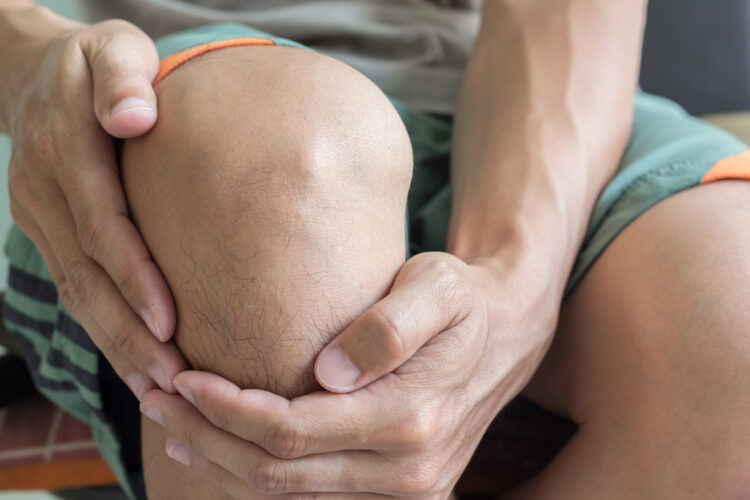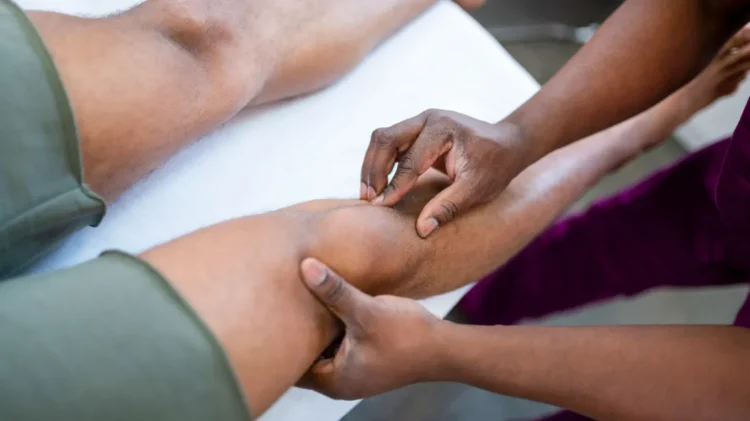As the average age of the American population increases, the incidence of degenerative joint disease (DJD) is also on the rise. Osteoarthritis (OA) is a common disease affecting millions of people in the United States, whether stemming from injuries or simply due to wear and tear. DJD can produce debilitating pain in both the young and old alike.
Although medical science has made great strides in chronic pain management (including joint injections), treatment results vary widely. Many patients have found success with non-steroid and steroid injections. Others were discontented because they felt their treatment merely masked rather than eliminated their symptoms.
Steroid Injections
Steroid injections are a type of medication that can help reduce pain and inflammation in the body. The injections are typically used to treat joint pain and inflammation but can also treat other conditions, such as inflammatory bowel disease.
What Do Steroid Injections Treat?

Back Pain
If you have back pain, a steroid injection into your spine can reduce inflammation and relieve some of your pain. However, this injection type is generally ineffective for the long-term relief of chronic (ongoing) low back pain. Steroid injections are often used as part of a treatment plan that includes physical therapy and medication.
Neck Pain
Steroid injections can help relieve neck pain caused by bulging discs or degenerative disc disease (DDD). These conditions cause chronic muscle spasms, which lead to increased pressure on the surrounding nerves and tissues in your neck region. A steroid injection will reduce inflammation in the affected area and decrease muscle spasms that cause your neck pain.
Pain From Tennis Elbow
Steroid injections may be used to treat tennis elbow (lateral epicondylitis), which is an overuse injury of the tendons of the forearm muscles that attach near the elbow joint on the outside of the elbow. The condition causes pain and tenderness on the outer part of the elbow joint when you use your forearm muscles in activities like lifting objects with your hand or turning a doorknob with your fingers.
Pain From Bursitis or Tendinitis
Bursitis and tendinitis are inflammatory conditions that cause pain, redness, warmth, and swelling over the joint. They are common causes of shoulder pain in middle-aged adults. Shoulder bursitis occurs when a small sac (bursa) located over the shoulder joint becomes inflamed. Shoulder tendonitis is inflammation of the tendons that connect muscles to bones.
Pain From Hip Bursitis
Hip bursitis occurs when there is inflammation in one of your hip bursae. This happens when there is trauma or injury to the hip joint or irritation from certain activities such as running or cycling. Your doctor may recommend steroid injections to treat this condition because they can quickly decrease swelling and relieve pain associated with hip bursitis.
Pain From Carpal Tunnel Syndrome or Cubital Tunnel Syndrome
Carpal tunnel syndrome (CTS) occurs when there is pressure on or entrapment of the median nerve in the wrist. CTS can be caused by repetitive use of hands (such as typing), direct trauma to the wrist, an injury to the nerve, or compression due to arthritis in the wrist joint. Symptoms include tingling, numbness, and weakness in several fingers on one hand; often, these symptoms are worse at night.
Disadvantages of Steroids Injections in Treating Joint Pains

The use of steroid injections helps overcome the main body problems, but it has certain disadvantages that may occur when they are used in excess or are not prescribed with proper dosage.
Steroids Damage the Kidney
If you are taking steroids and have a history of kidney disease, you must be very careful. Using steroids can cause kidney failure, especially if you take more than recommended doses. The kidneys filter the blood and remove toxins from it. In the case of steroid abuse, the kidneys fail to work properly and cannot remove all the toxins from your blood. As a result, your body becomes toxic, which may lead to death.
Steroids Harm the Liver
Steroids will increase the liver’s production of glucose (sugar). This overproduction of glucose can cause diabetes mellitus and ketoacidosis. Ketoacidosis is a life-threatening condition when there is insufficient insulin in your body to use the sugar in your bloodstream for energy. If left untreated, it can lead to coma or death.
Steroids Damage the Heart
Taking long-term steroids increases your risk of developing heart problems such as arrhythmia (abnormal heart rhythm), high blood pressure, and enlargement of your heart’s left ventricle (the main pumping chamber). These effects are more likely if you smoke cigarettes or drink large amounts of alcohol along with taking steroids.
Steroids Ruin Tendons
A steroid injection into a joint can cause an inflammatory response within the joint capsule (the sac-like structure surrounding a joint), resulting in softening or weakening of surrounding tissues such as tendons around joints like the shoulder and knee. This condition can lead to tendon ruptures because weakened tendons cannot support heavy loads placed on them during exercise or work activities such as lifting.
What Do Non-Steroid Injections Treat?

Carpal Tunnel Syndrome
Carpal tunnel syndrome (CTS) is a condition that affects the median nerve in your wrist. The median nerve controls feeling and movement in your thumb, index, middle, and part of your ring finger. CTS is caused by pressure on the median nerve, which causes pain, numbness, and tingling in the affected area.
Carpal tunnel syndrome can be treated with non-steroidal injections or surgery. If you have mild symptoms, non-steroidal injections may be recommended first. However, surgery may be recommended if you have severe symptoms or do not respond to treatment after six months to relieve pressure on your median nerve.
Temporomandibular Joint (TMJ) Disorders
Temporomandibular joint (TMJ) disorders are caused when the jawbone rubs against the skull’s temporal bone. This can cause pain in your face and jaw muscles to become inflamed. Non-steroidal injections can be used to treat this condition by reducing inflammation around the TMJ joint area.
De Quervain’s Tenosynovitis
De Quervain’s tenosynovitis is an inflammation of the sheath surrounding your wrist’s tendons. It causes pain, tenderness, swelling, and stiffness in your thumb. De Quervain’s tenosynovitis is usually treated with rest and non-steroid injections.
Disadvantages of Non-Steroid Injections

Despite their repeat use in the medical arena, non-steroid injections have disadvantages and side effects. These include potential negative effects on patients, ranging from some mild allergic reactions to others that may be more serious.
The Injections Are Painful
Non-steroid injections are very painful. The doctor will inject your joint with a local anesthetic before the injection to numb it and reduce the pain, but you may still feel some discomfort during the procedure.
Not Suitable for All Types of Arthritis
Non-steroid injections are unsuitable for people with rheumatoid arthritis or psoriatic arthritis because they can worsen your symptoms. If you have osteoarthritis, then non-steroid injections may be a good option for you since they may help relieve some of your symptoms without causing other side effects like stomach pain or diarrhea.
Not Suitable for Certain Medical Conditions
People with weak immune systems and those who have recently undergone surgery should not use non-steroid injections because they may increase the risk of infection or bleeding at the injection site. People who are allergic to latex should also avoid using non-steroid injections because they may contain latex proteins that could cause an allergic reaction in this group of patients.
Each injectable has its own benefits and drawbacks, so it ultimately comes down to the step you want or needs to take to provide joint pain relief. For example, steroid injections can give you immediate but short-lived relief, while non-steroid injections are well suited to long-term control of inflammation and pain. It all depends on the kind of pain you’re experiencing, how much other treatment you’ve undergone already, and a host of other factors.

